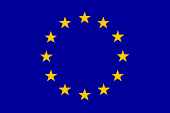FOSTER seminar 'Embracing Data Management - Bridging the Gap Between Theory and Practice' June 4th 2015, Brussels
 This post is written by Inge Van Nieuwerburgh (UGent, OpenAIRE) and originally appeared on the OpenAIRE blog
This post is written by Inge Van Nieuwerburgh (UGent, OpenAIRE) and originally appeared on the OpenAIRE blog
The Flemish Interuniversity Council, VLIR, organized a Foster workshop on Open Science and Research Data Management. The conference lived up to its name covering a wide variety of topics on Open Data and Data Management, ranging from policies and legal aspects to case studies, researcher’s experiences and useful applications.
After a general introduction, in which Stefanie Van der Burght, Ghent University, underlined the importance of data management in a research environment and how this influences current practices, Daniel Spichtinger and Jarkko Siren from the European Commission highlighted the EC’s commitment to Open Science, explaining the implementation of Open Access to publications and the Research Data Pilot for Horizon 2020 projects.
To handle the complex issue of intellectual property rights, Joris Deene gave a practical overview of questions to answer to know how to manage data legally. Gwen Franck provided an update on the Creative Commons licences, the easy way of indicating how you can use copyrighted material, without harming the rights of the rights holder. She stresses that these licences can only work properly if you use them correctly.
Inge Van Nieuwerburgh provided an insight on how OpenAIRE can facilitate complying with the mentioned European policy. The OpenAIRE infrastructure collects, disseminates, enriches and links research output of European projects, and creates statistics and easy reporting tools. Veerle Van den Eynden, UK data archive, presented the UK view on data management through the policies of UK research funders. Several data centers support the UK policy, UK data archive is one of them, handling digital data in the social sciences and humanities .
To bridge the gap between theory and practice, much attention was given to firsthand experiences. Researchers disclosed the current challenges and opportunities in the professional field. Lennart Martens enthusiastically reported on the first steps in building the PRIDE repository, in the proteomics field, back in 2009. He stressed the importance of standardization in an open ecosystem. Johan Verbeeck noted the administrative and sometimes financial burden of Open Access. He saw however a possibility in publishing preprints as a means of complying with Open Access demands.
Niel Hens saw a slow evolution towards good data management in the field of epidemiology giving us “The good, the bad and the ugly” examples.
More and more tools are in place to handle data with care. Jan Ooghe & Hannelore Vanhaverbeke, in the middle of a roadmap towards a research data policy at KULeuven, explained how a data management tool, DMPonline, is used in their institution. Next up was the challenge of finding a good data repository, a crucial step in making data available and searchable in a safe and sustainable way. Robert Ulrich from Re3data was present to guide us through the field of different data repositories, making it easy to find the right data repository One of the providers of such a repository is DANS. As Marnix Van Berchum explained, they do not only provide a sustainable data repository but they are also committed to data re-use. He stressed the importance of investing in training and consultancy. Geert van Grootel presented the FRIS portal: it integrates Flemish research information and places research in a broader context for stakeholders. To conclude Raf Guns provided various tools for version control of research data.
In all, the conference provided a useful overview of the developments in Open Data and Data Management. The applications and tools presented were particularly handy for anyone involved in data management. It was interesting to see how different persons, institutions and fields came together on one subject. Key messages taken from the conference was to reach out and this workshop surely was a step in the right direction.
The full program and the presentations given at the conference can be found on the Foster website.
 Unless otherwise stated, all materials created by the FOSTER consortium are licensed under a CREATIVE COMMONS
ATTRIBUTION 4.0 INTERNATIONAL LICENSE.
Unless otherwise stated, all materials created by the FOSTER consortium are licensed under a CREATIVE COMMONS
ATTRIBUTION 4.0 INTERNATIONAL LICENSE.
 This project has received funding from the European Union’s Seventh Framework Programme for research,
technological development and demonstration under grant agreement no 612425.
This project has received funding from the European Union’s Seventh Framework Programme for research,
technological development and demonstration under grant agreement no 612425.